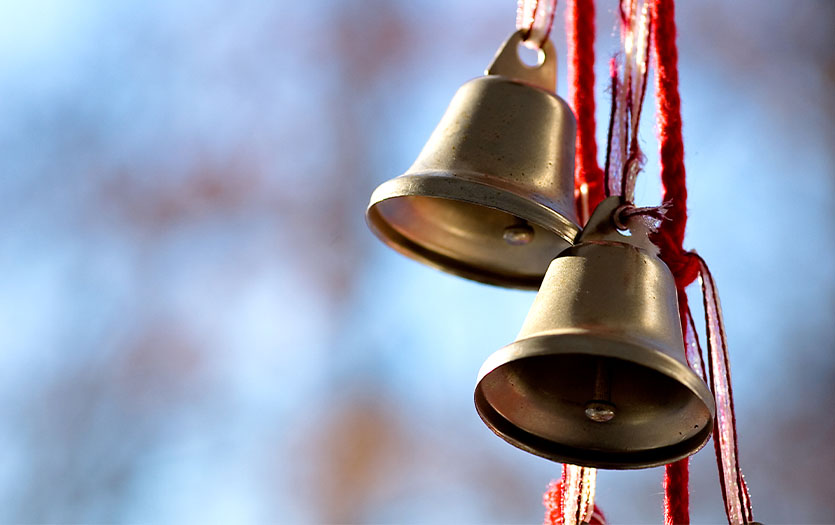
This post was written by Megan Kariger, MS, CCLS, DT, certified child life specialist, Parkview Health.
As the holidays approach, you and your family may be looking forward to picking out gifts, participating in family traditions, and attending intimate events with friends and family. Because of COVID-19, you might even be brainstorming new and creative ways to connect with loved ones, while keeping your distance for safety reasons.
The holiday season can be a time of joy and excitement for children, but it can also be a time of stress, particularly this season. While on break from school, children’s routines are disrupted. They might be mourning the loss of large family gatherings or missing friends and family. They might feel like they have too many expectations placed upon them. The holidays can be an especially difficult time for some children, including those who are grieving the loss of a loved one or children with anxiety or depression.
Your child might not tell you that they are upset or stressed this holiday season, but they might offer signs, such as fussiness, lack of appetite or overeating. You might observe them getting upset over minor situations, complaining of headaches or stomach aches, or throwing temper tantrums.
In order to decrease stress or anxiety that children might be dealing with this holiday season, consider the following tips.
Consider your own stress. Children often pick up on the stress or anxiety their parents are feeling, which in turn can affect how children are coping, too. Remember to take care of yourself! It is normal to feel stressed, especially during this time of year, but try to communicate to your children why you are feeling burnt out. This can help normalize emotions. You can also use this as an opportunity to teach your children coping skills and how to talk about their feelings.
Set realistic expectations for your family. It is important to have realistic expectations for yourself and for your children. You might not be able to do every activity, get up extensive decorations or buy every gift on a family member’s Christmas list. That’s OK! Especially this year. For those events or activities, you participate in, try to prepare children for what they will be doing there, what they might see or hear (loud noises, bright lights, crowds), and if possible, how long they might be there. Set time limits when attending events. Have your child bring a favorite item or comfort items to help them cope, as they may find the event overstimulating, tiresome, or they might become homesick. Additionally, you can set realistic expectations with children by being upfront that you might be spending more time inside the house this holiday season than previous years or that you won’t be able to see everyone. Consider setting up phone calls or video calls to keep children connected to their other family members and friends.
Stay active. A great way to destress is to get out of the house and away from technology. You can stay active by going for a family walk, go to the park, ice skating or sledding. This is beneficial for their mental and physical health, as well as yours. Additionally, children are often spending time outside for recess or have gym time, so being active on the holidays just helps maintain their normal routine.
Stick to routines to decrease stress and anxiety. Try to keep the same bedtime unless it’s a special occasion, as well as keeping mealtimes roughly the same. It is important for children of all ages to get enough sleep so they can cope effectively with everything going on during the holidays. Keep in mind that this year might have already been difficult for them due to changes in their day-to-day lives, so trying to stay consistent at home can help provide them with some sense of normalcy and control. If your child has been participating in e-learning, you could consider doing a virtual phone call with their friends or meeting up with them in person to maintain that connection and schedule. For younger children, it can be beneficial to consider your child’s sleep or eating schedule when planning activities to decrease possible temper tantrums.
Family time. Even though you’re together for holiday events and activities, it’s beneficial to spend time together just as a family. This is a great time to participate in favorite holiday traditions, such as baking cookies, playing games, decorating your home, watching holiday movies, making presents for other family members, and so on. These activities can allow for children to be themselves while at home and should be fun. This can also be an opportunity to remind children that they are not alone and that they have a support system that they can turn to. For those children who are grieving the loss of a loved one, consider creating a new tradition or a way to remember and honor that loved one. For instance, participating in a favorite activity of that loved one, lighting a candle or making an ornament for them.
Sources
National Alliance on Mental Illness



